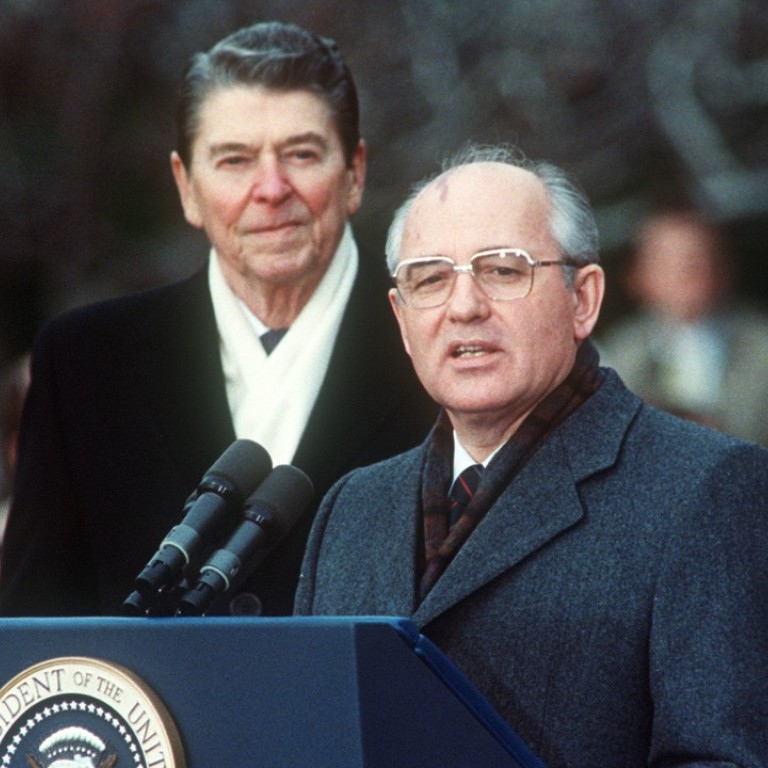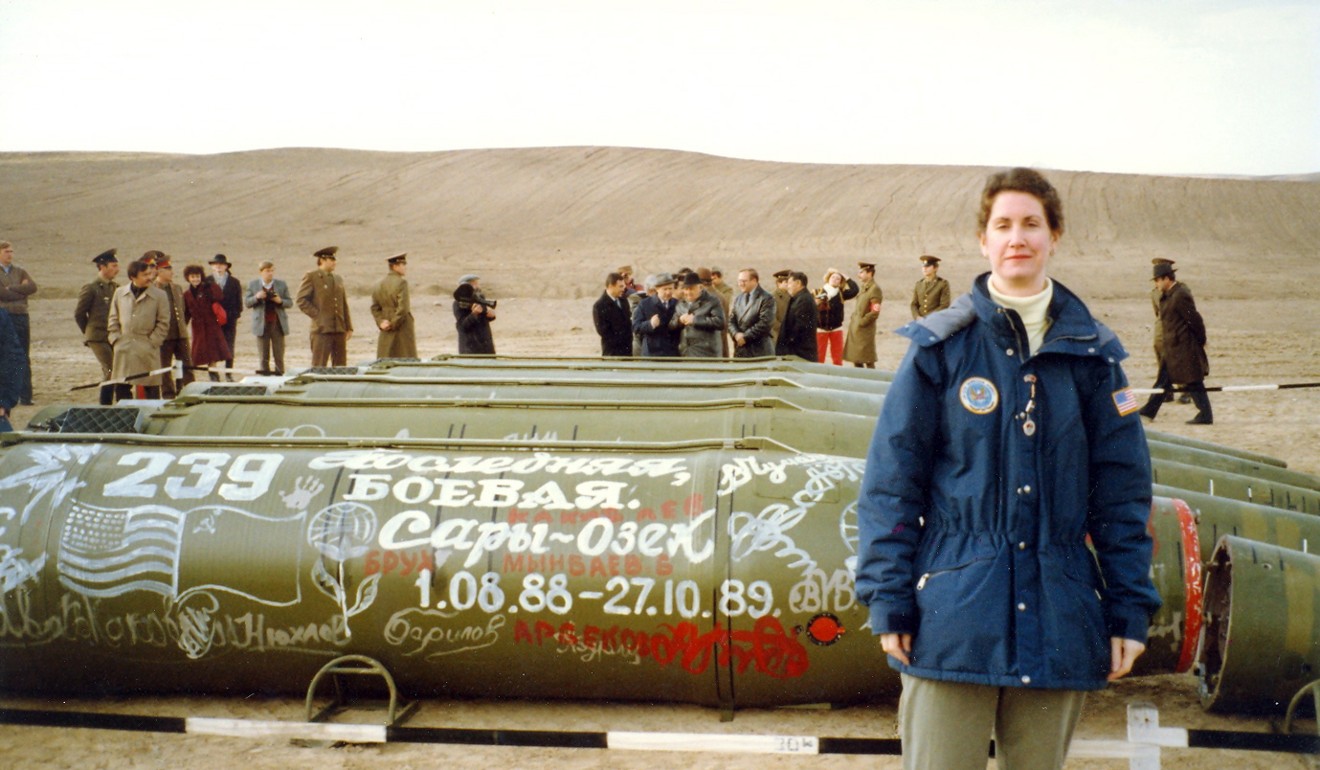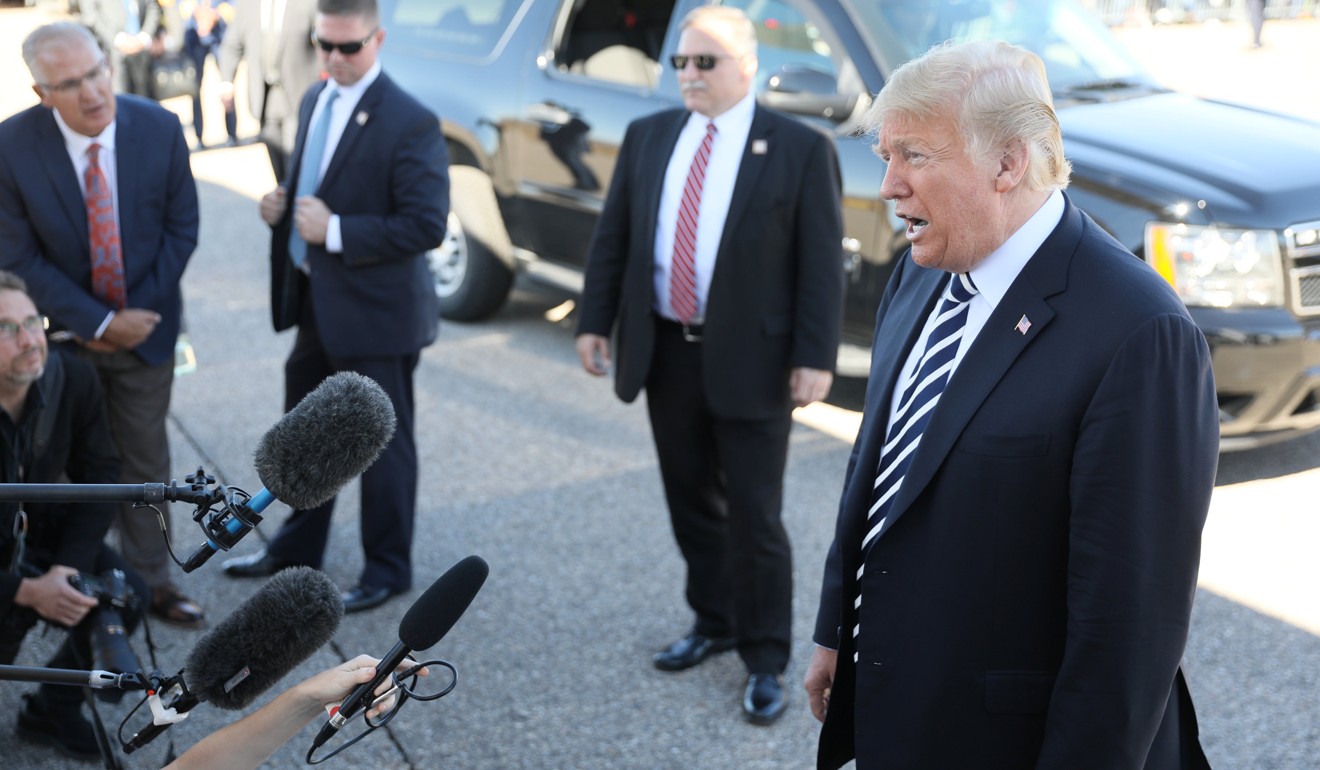
Donald Trump says US will pull out of landmark nuclear arms pact with Russia
● Pact was signed by Ronald Reagan and Mikhail Gorbachev in 1987
● US hawks argue pact ties country’s hands in strategic rivalry with China
US President Donald Trump said the United States planned to leave a cold war-era nuclear weapons treaty with Russia, which criticised the move as Washington’s latest effort to be the sole global superpower.
Trump claims Russia has long violated the three-decade-old Intermediate-Range Nuclear Forces Treaty, known as the INF, was signed in 1987 by president Ronald Reagan and Mikhail Gorbachev.
But a foreign ministry source told the RIA Novosti state news agency that Washington’s “main motive is a dream of a unipolar world”, one that won’t be realised.
“We’re the ones who have stayed in the agreement and we’ve honoured the agreement, but Russia has not unfortunately honoured the agreement, so we’re going to terminate the agreement and we’re going to pull out,” Trump told reporters in Elko, Nevada on Saturday.
Xi Jinping, Donald Trump agree to talks at G20 summit next month, source says
Asked to clarify, the president said: “Unless Russia comes to us and China comes to us and they all come to us and they say, ‘Let’s all of us get smart and let’s none of us develop those weapons,’ but if Russia’s doing it and if China’s doing it and we’re adhering to the agreement, that’s unacceptable. So we have a tremendous amount of money to play with our military.”
Trump spoke as his National Security Advisor John Bolton was set to meet this week with Russia’s Foreign Minister Sergei Lavrov, ahead of what is expected to be a second summit between Trump and Russian leader Vladimir Putin this year.
Bolton was also set to meet with Security Council Secretary Nikolai Patrushev and Putin aide Yuri Ushakov.
Kremlin spokesman Dmitry Peskov said a “possible meeting” was being prepared between Putin and Bolton.

The Trump administration has complained of Moscow’s deployment of 9M729 missiles, which Washington says can travel more than 500km (310 miles), and thus violate the INF treaty.
The treaty, which banned missiles that could travel 500 to 5,500km, put a term to a crisis that began in the 1980s with the deployment of Soviet SS-20 nuclear-tipped, intermediate-range ballistic missiles targeting Western capitals.
The Russian foreign ministry official accused Washington of implementing policy “toward dismantling the nuclear deal”.
Washington “has approached this step over the course of many years by deliberately and step by step destroying the basis for the agreement,” the official said, quoted by Russia’s three main news agencies.

“This decision is part of the US policy course to withdraw from those international legal agreements that place equal responsibilities on it and its partners and make vulnerable its concept of its own ‘exceptionalism,’” the official said.
Russian senator Alexei Pushkov wrote on Twitter that the move was “the second powerful blow against the whole system of strategic stability in the world” with the first being Washington’s 2001 withdrawal from the Anti-Ballistic Missile treaty.”
“And again the initiator of the dissolution of the agreement is the US,” Pushkov wrote.
Bolton himself is pressuring Trump to leave the INF and has blocked any negotiations to extend the New Start treaty on strategic missiles set to expire in 2021, according to The Guardian newspaper.
A US withdrawal from the INF could also target China. As a non-signatory, Beijing can develop without constraints intermediate-range nuclear weapons.
US hawks have also argued that the INF treaty ties the country’s hands in its strategic rivalry with China in the Pacific, with no response to Chinese medium-range missiles that could threaten US bases, allies and shipping.
Admiral Harry Harris, the former commander of the US Pacific Command told the Senate in March: “We have no ground-based capability that can threaten China because of, among other things, our rigid adherence, and rightfully so, to the treaty that we sign on to, the INF treaty.”
But Jeffrey Lewis, the director of the East Asia non-proliferation programme at the Middlebury Institute of International Studies at Monterey, disagreed that the INF left the US at a significant disadvantage in the Pacific.
“The China stuff is nonsense,” he said.
“INF does not prohibit sea and air-based systems, not does it prohibit South Korea and Japan from developing long-range missiles. If China were a real problem, the US and its allies could have acted long ago.”
Alexandra Bell, a former senior state department official and now senior policy director at the Centre for Arms Control & Non-Proliferation, said: “When problems arise in arms control, you work and fix them.
“What shocks me is that this president who is constantly telling us he is deal-maker has failed utterly to save Reagan’s nuclear legacy. He did nothing with his relationship with Putin. There were trades to be made to fix this treaty and he couldn’t pull it off.”
US-Russia ties are under deep strain over accusations that Moscow meddled in the 2016 presidential election, as well as tension over Russian support for the Syrian government in the country’s civil war, and the conflict in Ukraine.
On Friday, the finance chief of Russia’s leading troll farm was indicted in the US for interfering with US elections, the first person to face charges involving the 2018 congressional midterm vote.
Russia accused the US of fabricating the charges.
Washington is, however, looking for support from Moscow in finding resolutions to the Syria war and putting pressure on both Iran and North Korea.
No new summit between Trump and Putin has been announced, but one is expected in the near future.
The two leaders will be in Paris on November 11 to attend commemorations marking the end of the first world war.
A senior Trump administration official, who spoke on condition of anonymity, said another potential date would be when the presidents both attend the Group of 20 meeting on November 30 to December 1.
Additional reporting by The Guardian

.png?itok=arIb17P0)